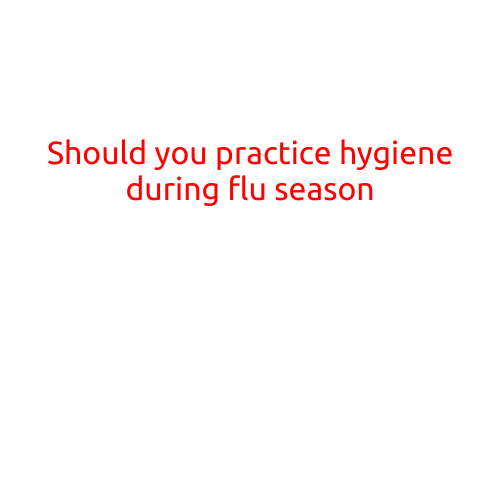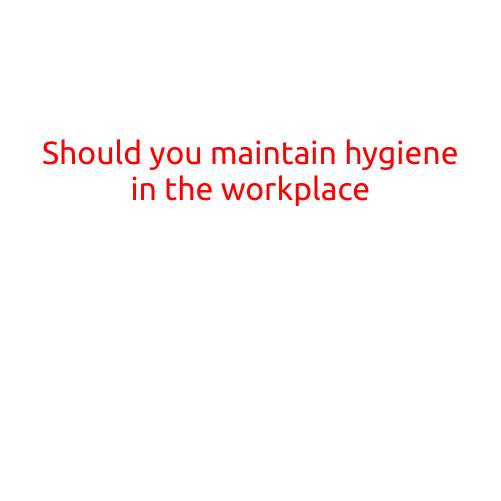
Should You Practice Hygiene During Flu Season?
As we head into the cold and flu season, it’s more important than ever to prioritize personal hygiene to prevent the spread of illnesses. The flu, specifically, is a highly contagious and potentially severe illness that can be devastating to those with weakened immune systems or underlying health conditions.
In this article, we’ll explore the importance of practicing hygiene during flu season and provide some simple and effective ways to keep you and your loved ones safe and healthy.
Why is Hygiene Important During Flu Season?
Practicing good hygiene is crucial during flu season because the flu virus spreads easily from person to person through:
- Airborne transmission: When an infected person talks, coughs, or sneezes, they release tiny droplets of the virus into the air, which can infect others nearby.
- Contact transmission: Touching surfaces or objects contaminated with the flu virus and then touching your mouth, nose, or eyes can spread the infection.
- Close contact: Sharing food, drinks, or utensils with someone who has the flu can also spread the virus.
By practicing good hygiene, you can significantly reduce your risk of contracting the flu and the risk of spreading it to others.
Simple Hygiene Practices to Protect Yourself
- Wash your hands frequently: Use soap and warm water, and rub your hands together for at least 20 seconds, paying special attention to the backs of your hands, between your fingers, and under your nails.
- Use hand sanitizer: When soap and water aren’t available, use an alcohol-based hand sanitizer with at least 60% alcohol.
- Cover your mouth and nose: When coughing or sneezing, use a tissue and immediately dispose of it in a trash can. If a tissue isn’t available, cough or sneeze into your elbow rather than your hand.
- Avoid close contact: Try to maintain a distance of at least 3 feet from others to reduce the risk of transmission.
- Disinfect high-touch areas: Regularly clean and disinfect frequently touched surfaces and objects, such as doorknobs, light switches, countertops, and remotes, using a disinfectant spray or wipe.
- Avoid sharing personal items: Refrain from sharing food, drinks, utensils, or personal care items with others to prevent the spread of the flu virus.
Additional Tips
- Stay home when sick: If you’re showing symptoms of the flu, stay home from work or school to prevent spreading the infection to others.
- Get vaccinated: The flu vaccine can help protect you from the flu and reduce the severity of symptoms if you do contract the virus.
- Stay hydrated: Drink plenty of fluids, such as water, tea, or soup, to help ease symptoms and stay healthy.
- Rest adequately: Get plenty of rest to help your body recover from the flu.
Conclusion
Practicing good hygiene during flu season is crucial to preventing the spread of the flu virus. By implementing these simple and effective hygiene practices, you can significantly reduce your risk of contracting the flu and the risk of spreading it to others. Remember to prioritize personal hygiene, stay informed, and take preventive measures to keep yourself and your loved ones healthy and safe this flu season.





